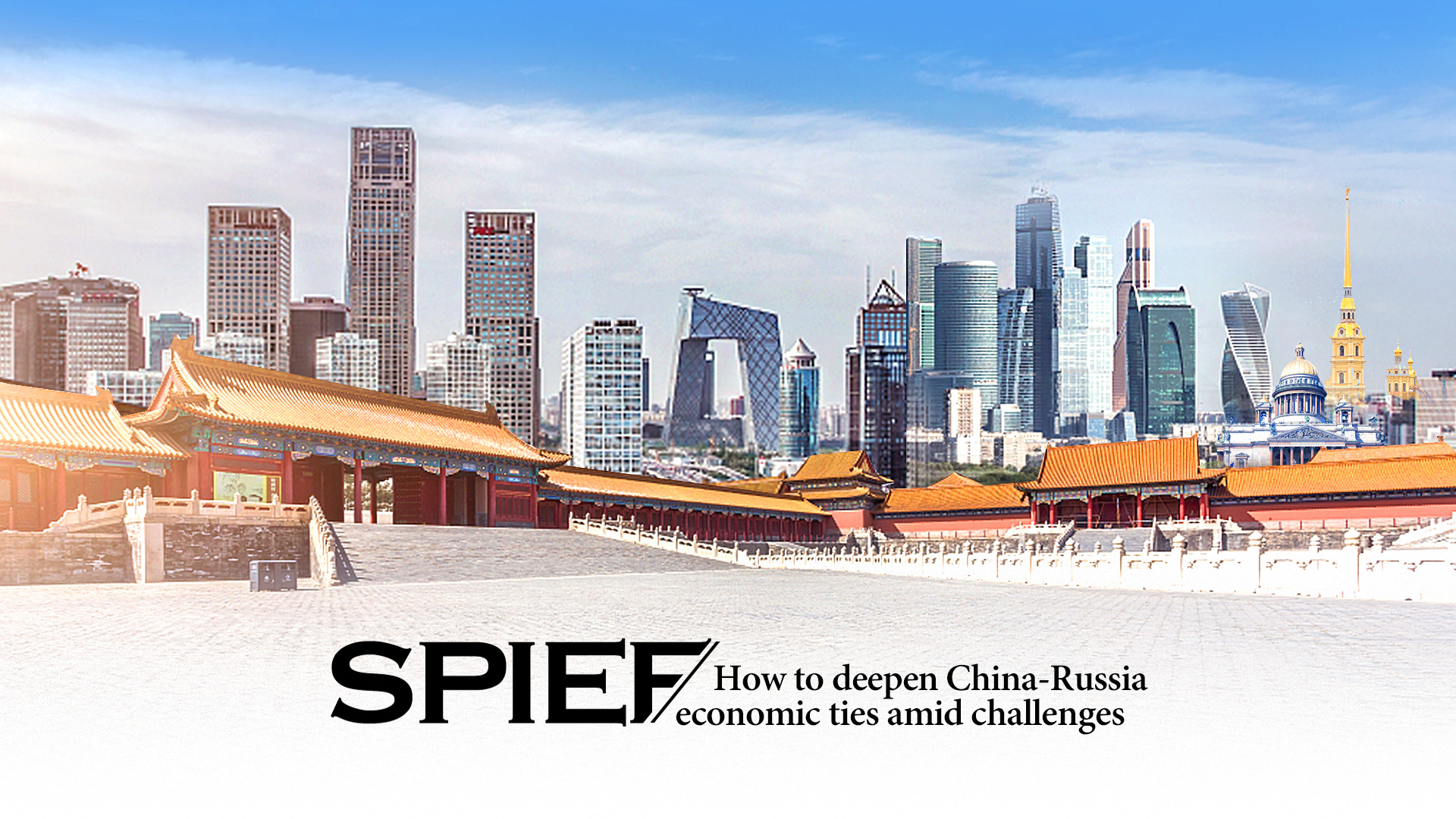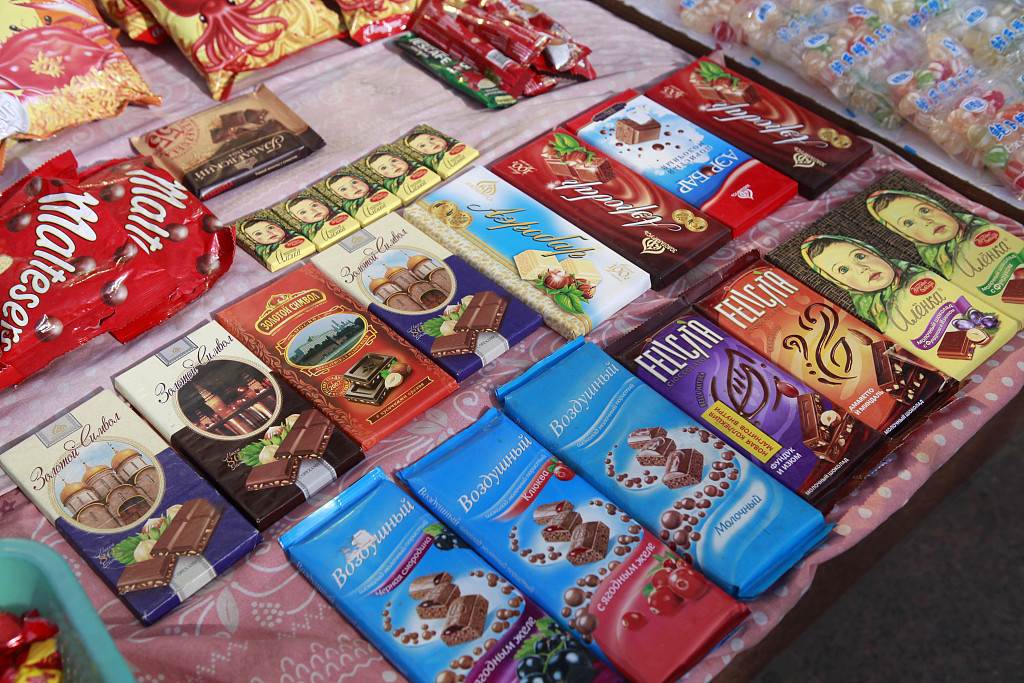
Opinion
20:12, 10-Jun-2019
China-Russia economic ties thrive in unpredictable times
Pavel Kudriavtsev

Editor's note: Pavel Kudriavtsev is chief representative of the Russian Chamber of Commerce & Industry in Eastern Asia. The article reflects the author's opinion, and not necessarily the views of CGTN.
During Chinese President Xi Jinping's Russia visit, Beijing and Moscow agreed to upgrade their relations to a comprehensive strategic partnership of coordination for a new era. The upgrade is based on the two countries' geographical, cultural and historical features, and is a driver for future China-Russia economic cooperation.
Based on common interests, the two countries have seen intense interactions between governmental departments, enterprises, and business associations, and established mechanisms to boost their bilateral trade and investments.
In 2018, the trade volume between China and Russia reached a record high of 108 billion U.S. dollars and is continuing to grow this year. The export of high-quality, cost-efficient, and environmentally-friendly Russian products to China has seen a steady rise in recent years. Ready-made food products from Russia, for example, candy, chocolate, honey, sunflower oil, and ice cream, are already well-known to Chinese consumers and are in high demand in China.
Recently, a large number of Russian businesses have shown interest in supplying poultry meat and dairy products to the Chinese market. Trade restrictions on these products were lifted at the end of 2018.

Workers shake hands at a ceremony to connect both halves of the Chinese-Russian cross-border bridge spanning the Amur River, May 31, 2019. /VCG Photo
Workers shake hands at a ceremony to connect both halves of the Chinese-Russian cross-border bridge spanning the Amur River, May 31, 2019. /VCG Photo
Moreover, a number of agreements were signed during President Xi's Russia visit to expand the export of Russian soybeans, wheat and other crops to China. These agreements, together with the further opening-up of the beef and pork market, have instilled more momentum to China-Russia bilateral trade.
Apart from agricultural products, Russia has also seen a boost in the export of petrochemical products, fertilizer, timber, and high-tech goods to China. The two countries' energy cooperation has huge potential. Given the above, China and Russia will see a significant increase in bilateral trade in 2020 after the operation of the eastern route of the Power of Siberia gas pipeline.
Since 2016, China has been actively implementing the supply-side structural reform, aiming at promoting the country's high-tech development. The improvement in the quality of China's electric appliances, engineering products and those with high-added value will, in turn, further boost the Russian customers' demands for Chinese products.
China and Russia have seen sound cooperation in energy, aircraft, natural resources, transportation, and infrastructure as well. Chinese companies are interested in investing in the special economic zones in the Far East and Siberia – Territories of Advanced Development (TOR) – where preferential tariffs and simplified administrative procedures are available.
The two countries can cooperate more on exhibitions. Chinese businesses are frequent visitors to major commercial events and exhibitions in Russia. It is worth noting that Chinese enterprises took part in almost all exhibitions in Moscow Exhibition Center in 2018. Among all exhibitors, more than 10 percent are from China, occupying approximately eight percent of the total exhibition area.

Russian candies are sold on street corners in Heihe City, Heilongjiang Province, China, November 1, 2016. /VCG Photo
Russian candies are sold on street corners in Heihe City, Heilongjiang Province, China, November 1, 2016. /VCG Photo
Both China and Russia strongly oppose trade protectionism, unfair competition, and the politicization of the global economy. Both leaders reiterated this at the just-concluded St. Petersburg World Economic Forum. The success of China-Russia cooperation demonstrates the importance of market-determined principles in bilateral trade. Meanwhile, the government should create favorable conditions to eliminate foreign trade barriers.
China-Russia cooperation is based on mutual benefits and conforms to the WTO principles. Their collaboration under the SCO and BRICS are inspiring to other countries. The integration of the Eurasian Economic Union and the Belt and Road Initiative deserves applause as well.
Undeniably, China-Russia economic cooperation faces challenges. For instance, against the backdrop of Washington's anti-Russia sanctions, financial support for transactions between China and Russia faces some obstacles.
But still, China-Russia economic ties are intense, especially after the U.S. launched a trade war against Beijing. Stability and predictability are highly valued in businesses, and this is what makes China-Russia relations thrive.
(If you want to contribute and have specific expertise, please contact us at opinions@cgtn.com.)

SITEMAP
Copyright © 2018 CGTN. Beijing ICP prepared NO.16065310-3
Copyright © 2018 CGTN. Beijing ICP prepared NO.16065310-3